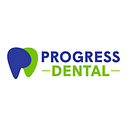1. Clinical Responsibilities
These are the core functions of a dentist's job and include:
- Diagnosing Dental Issues: Conducting thorough assessments of a patient's oral health, which includes examining the teeth, gums, and mouth for any signs of disease, decay, or abnormalities.
- Treating Dental Problems: Diagnosing and treating conditions such as cavities, gum disease, oral infections, and other dental issues. This may involve:
- Fillings (for cavities)
- Root Canals (for infected or damaged teeth)
- Extractions (removal of teeth, including wisdom teeth)
- Crowns and Bridges (to restore damaged or missing teeth)
- Dentures (removable replacements for missing teeth)
- Performing Surgery: In some cases, dentists may perform minor surgical procedures such as gum surgery, biopsies, or tooth extractions.
- Restorative Dentistry: Providing treatments that restore the functionality and appearance of the teeth, including crowns, bridges, veneers, and implants.
2. Preventive Care and Education
- Oral Hygiene Counseling: Educating patients about proper brushing, flossing, and dietary habits to prevent cavities, gum disease, and other dental issues.
- Preventive Procedures: Conducting routine dental cleanings (prophylaxis), applying fluoride treatments, and placing sealants to prevent decay, especially in children and adolescents.
- X-Rays and Screening: Using diagnostic tools such as X-rays to detect hidden dental issues like cavities between teeth or bone loss.
- Risk Assessments: Identifying patients who may be at higher risk for oral health problems due to lifestyle factors (e.g., smoking, poor diet) or medical conditions (e.g., diabetes).
3. Patient Care and Management
- Building Relationships: Creating a positive and trusting relationship with patients to ensure they feel comfortable during procedures and encourage regular visits.
- Pain Management: Administering local anesthesia, sedation, or other pain-relieving techniques to ensure patients are comfortable during procedures.
- Emergency Dental Care: Handling dental emergencies such as broken teeth, severe toothaches, or oral injuries, often outside of normal office hours.
4. Administrative and Business Duties
- Record Keeping: Maintaining accurate and detailed patient records, including medical history, treatments provided, and future care recommendations.
- Scheduling and Appointments: Managing patient appointments, follow-ups, and reminders for routine care.
- Billing and Insurance: Processing insurance claims, managing patient billing, and explaining treatment costs and insurance coverage to patients.
- Supervising Dental Staff: In larger practices, dentists may oversee or manage dental hygienists, dental assistants, and office staff.
5. Specialized Care
Some dentists specialize in certain areas of dental care and have additional responsibilities:
- Orthodontists: Focus on aligning teeth and jaws with braces, retainers, and other orthodontic devices.
- Periodontists: Specialize in the prevention, diagnosis, and treatment of gum disease and other conditions affecting the supporting structures of the teeth.
- Pediatric Dentists: Specialize in the dental care of children and adolescents, focusing on preventive care, early orthodontics, and managing dental anxiety in young patients.
- Oral Surgeons: Perform more complex surgeries, including the removal of impacted teeth, treatment of oral cancers, and reconstructive facial surgeries.
6. Research and Continuing Education
- Staying Updated: Dentists must stay up-to-date with the latest advancements in dental technology, techniques, and research. Continuing education is required to maintain licensure and improve patient care.
- Research: Some dentists are involved in research related to new treatments, preventive measures, or technologies in dentistry.
7. Collaboration with Other Health Professionals
- Interdisciplinary Care: Dentists often collaborate with physicians, specialists, and other healthcare providers, especially for patients with systemic conditions (e.g., diabetes, heart disease) that can affect oral health.
- Referrals: If necessary, dentists will refer patients to specialists for more complex issues, such as oral surgery, periodontics, or orthodontics.
8. Community Outreach and Advocacy
- Public Health Initiatives: Many dentists are involved in community outreach programs, educating the public on the importance of oral health and preventive care.
- Advocacy: Dentists may advocate for policies to improve oral health access and public health initiatives, such as water fluoridation or dental care for underserved populations.
Key Skills for a Dentist:
- Manual Dexterity: Dentists need excellent hand-eye coordination for performing procedures accurately.
- Communication Skills: The ability to explain procedures and care instructions clearly, as well as to comfort and reassure anxious patients.
- Attention to Detail: Dentists must have a keen eye for detail to detect small problems early, ensuring successful treatments and preventing complications.
- Problem Solving: Each patient is unique, and dentists must devise effective solutions for a wide variety of dental issues.
Job Types: Full-time, Permanent, Fresher
Pay: From ₹23,000.00 per month
Benefits:
- Health insurance
- Provident Fund
Schedule:
- Day shift
- Fixed shift
- Morning shift
Experience:
- dentist : 1 year (Preferred)
Work Location: In person













